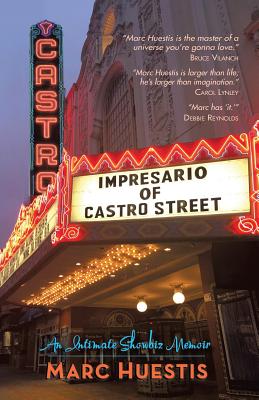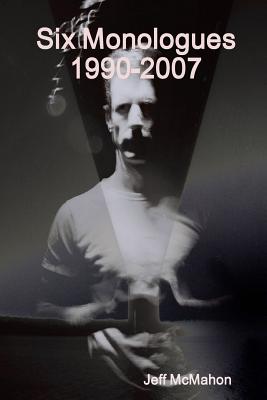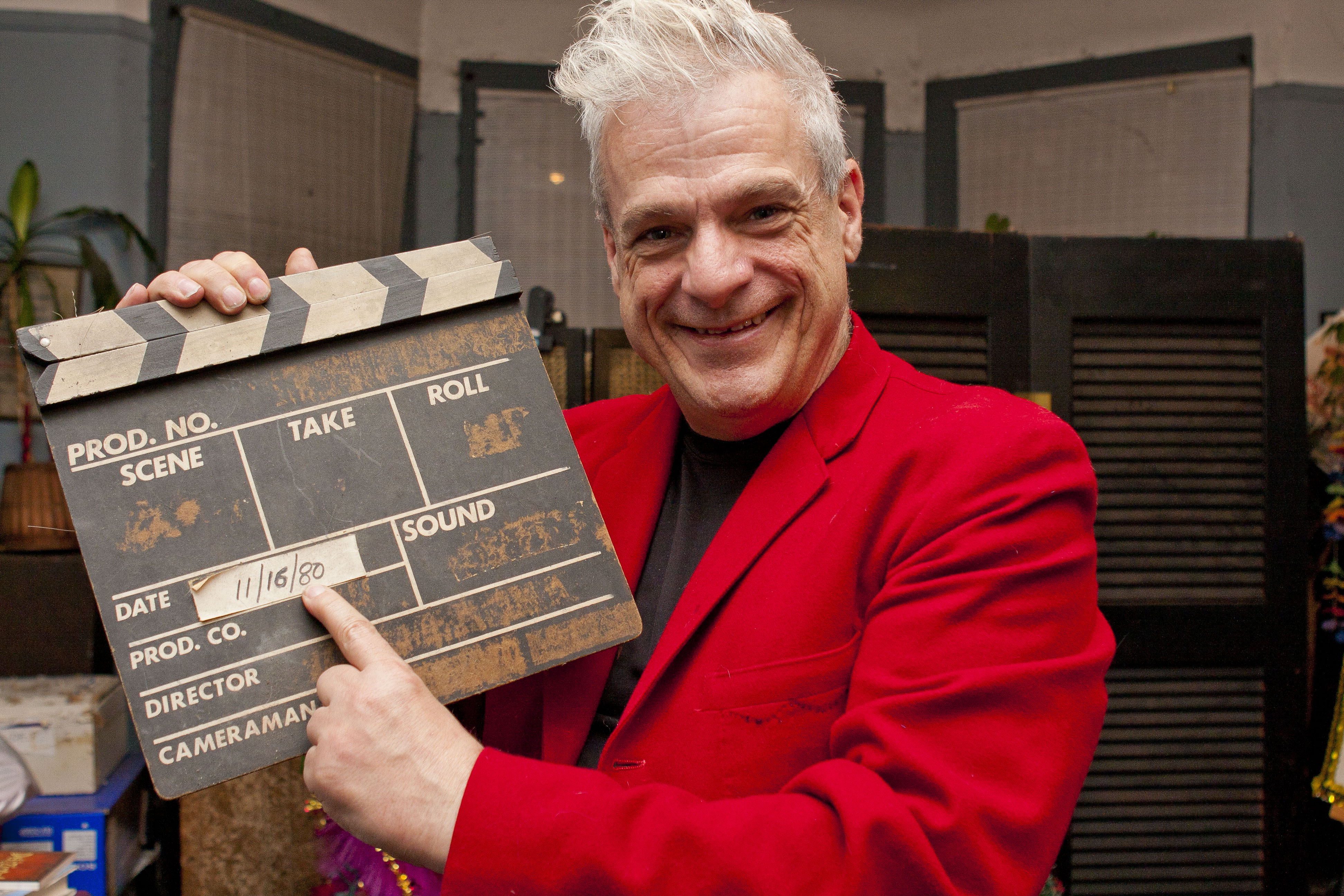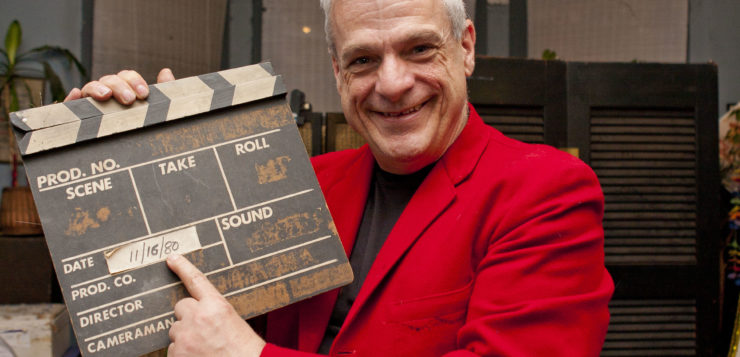 Impresario of Castro Street: An Intimate Showbiz Memoir
Impresario of Castro Street: An Intimate Showbiz Memoir
by Marc Huestis
Outsider Productions
359 pages, $19.99
 Six Monologues 1990–2007
Six Monologues 1990–2007
by Jeff McMahon
NoPassport Press. 186 pages, $12.
BOTH author-impresario Marc Huestis and dancer Jeff McMahon used Super-8 movie cameras in their work in the 1970s and ’80s. Each has written about his artistic career, and, although they worked in very different fields, both incorporated their burgeoning gay identity into their films and performances.
Landing in San Francisco in 1974, Marc Huestis came into being, performing with the hippie drag troupe Angels of Light and shooting Super-8 gender-fuck melodramas developed at Harvey Milk’s camera store in the Castro. In 1977, he and some friends put up a sheet to showcase their raucous work at the Gay Film Festival of Super-8 Films (which evolved into today’s Frameline Film Festival). Huestis created one of the first AIDS documentaries, Coming of Age (1986), showcasing an exuberant birthday party celebrating one man’s life, not waiting for a memorial service. Another film, Sex Is…, which featured interviews with fifteen gay men, was a box office and critical success, winning the Audience Teddy Award at the 1993 Berlin Film Festival.

His early countercultural years are gloriously detailed in this memoir, Impresario of Castro Street, but even more fun are his ribald anecdotes of the camp extravaganzas he produced at the Castro Theatre featuring trashy movies and aging movie stars, accentuated by drag queens and kitsch galore. Huestis worships divas and revels in behind-the-scenes gossip of his more than fifty productions over the past twenty years. Lavish spectacles celebrating Ann Miller, Jane Russell, Debbie Reynolds, Patty Duke, Tony Curtis, and John Waters are breathlessly celebrated. Dirt is heartily dished on “drunken” Sandra Dee, “crazy” Karen Black, “damaged” Christina Crawford, and others. Betwixt and between celebrity tales are poignant reminiscences of coming to terms with his dying mother and lost brother. Huestis also writes unsparingly about his battle with meth-infused sexcapades, in stark contrast to the glitz and glamor of his flamboyant showbiz persona. After seventeen years on the “crystal merry-go-round,” he went cold turkey and also stopped having sex.
Today Huestis lives in a small cabin near Lake Tahoe, ready for whatever his third act in life will bring. His iconoclastic life journey embodies the zeitgeist of San Francisco’s LGBT history over the last fifty years, and his resiliency is powerfully affirming—a must read for aficionados of cultural and queer studies.
As an emerging artist in the New York avant-garde performance scene of the 1980’s, Jeff McMahon was immensely appealing. His long-limbed, supple style of movement, amplified by his adroit interjection of language and metaphor, garnered him grants, commissions, and performance tours. From the outset, he was multi-disciplinary, making Super-8 films of other downtown dancers and incorporating visuals into his stage performances. Like many in his generation, he is now housed within academia. Since 2001, he has been teaching at Arizona State University in the School of Film, Dance, and Theatre. As an artist, this has allowed him to continue developing his socially conscious, queer, and politically charged æsthetic.
This collection, Six Monologues 1990-2007, part of NoPassport Press’s “Dreaming the Americas” series, documents McMahon’s growth as a solo performer/writer. His earliest work unpacks privilege, race, masculinity, and the social norms of success. Anti-war polemics, queer identity, 9/11, police killings, and erudite memory plays document the ever-increasing complexity of his later existential narratives. In this compilation, the maturation and mastery of an authentic agitprop sensibility is evident. Most potent is his “City of God” (1993), a tale about an early boyfriend, finding his artistic voice, surviving amid the detritus of the pandemic, and the decline of aging.
McMahon’s finely honed poetics and vibrant histories add much to the literature of political resistance. His words are beautiful, his politics fierce, his craft singular—the kind of artist that’s needed in these profane times. In recent years, he has increasingly utilized online platforms with films, and he has collaborated on a web-based series, in addition to his theatrical work. However, this essential collection of his solo performance writing is a clarion call to other contemporary artists of the necessity to bear witness.
John R. Killacky, a frequent contributor to these pages, is a legislator in the Vermont House of Representatives.






